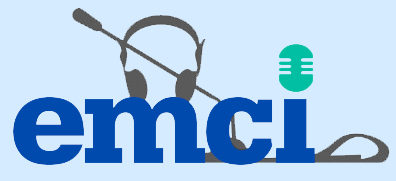What is exactly the EMCI?
The European Masters in Conference Interpreting is a consortium of partner Universities offering a Masters course in conference interpreting.
EMCI also refers to the Masters-type university programme which was launched as a pilot project by the DG-SCIC of the European Commission’s and the DG-LINC of the European Parliament in 1997.
The member institutions pursue a common policy on student recruitment and assessment and are committed to quality maintenance and regular reviews of the programme to adapt to changing needs and new developments.
How can I apply to the EMCI?
You do not apply directly to the EMCI. You need to apply to the member Universities, because even though all EMCI members are committed to the same core curriculum, they also need to abide by national regulations, thus each member has specific deadlines and rules.
Is the EMCI programme graduate or postgraduate ?
The EMCI programme is a post-graduate programme. In order to be eligible for admission, candidates must thus hold a recognized University degree or equivalent.
How is it possible that EMCI partners offer the same programme but do not have the same duration ?
As mentioned previously, member Universities share a common core curriculum but are then free to organise the course according to their needs and possibilities.
As a consequence, an EMCI programme may last from 9 months to 2 years, but students are taught the same skills, although at a different rhythm.
Can the EMCI finance my studies ?
Unfortunately the EMCI consortium cannot provide any funds or bursaries. However, the European institutions have a special funding scheme for students wishing to become conference interpreters.
For further information, please consult DG-SCIC directly.
Who can take part in the student mobility scheme ?
Only students enrolled in one EMCI programme in one of the member Universities can take part in the Student Mobility exchanges, within the consortium and according to a procedure established by the coordinating institution on the basis of the sponsors’ recommendations.
Are samples of admission examinations available ?
Yes, you can find some examples of speeches used for admission exams here.
What schools are members of the EMCI consortium?
For an updated list of member Universities, please consult the Members list, where you will find direct clickable links to the websites of all member universities.
Can I apply to only one school ?
No, you can apply to more than one member University, but you need to make sure that such University offers your language combination.
For a list of language combinations offered during the current academic year, please consult the “Term and Exam Dates” document that you will find in the News.
For further information on admission to specific Universities, please consult their website.
How long does the EMCI last ?
There is no standard or compulsory duration for an EMCI programme, although all programmes are organised in conformity with the EMCI core curriculum.
Given that member Universities need to abide by national regulations, the duration of the programmes may be different, but the study programme is always designed to correspond to 60 Credits (ie. the equivalent of one year of full-time study) under the European Credit Transfer System (ECTS).
Please consult the members’ websites for more detailed information.
How much does the EMCI programme cost ?
There is no standard fee for the EMCI Master programme. Given that member Universities depend on national legislation, some of the members are public Universities, with rather low fees, and others are private or semi-private schools, with higher fees.
Please consult the members’ websites for more detailed information.
How many languages do I need to speak in order to become a conference interpreter?
There is no standard answer to this question. It depends on your active and passive languages and the market needs for such passive language. However, in the case of widely used languages, a minimum of 3 passive languages is needed at the EU level.
For less widely-used languages, two passive languages may suffice, depending on which languages.
Who can take part in the teacher mobility scheme ?
Only trainers teaching in one EMCI programme in one of the member Universities can take part in the Teacher Mobility exchanges, within the consortium and according to a procedure established by the coordinating institution on the basis of the sponsors’ recommendations.
